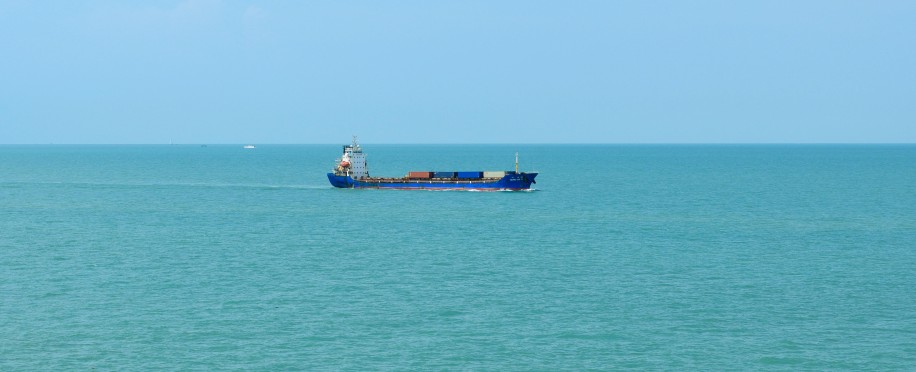Copyright © 2026 lmitac.com All Rights Reserved. Contact - Terms and Conditions - Privacy Policy - Quality Policy - Become an instructor - Vacancies - Sitemap
London Maritime Academy is a trade name for London Premier Groupversion: 2.9.0
London Maritime Academy is a trade name for London Premier Group

Posted on : 10/4/2025, 10:44:22 PM
Last Update : 10/4/2025, 10:44:22 PM
There are many changes and challenges included in the maritime industry, thus, many maritime companies follow blank sailings strategies to manage a scheduled voyage on ocean lines or ports.
Moreover, blank sailings announced by each alliance included in the shipping process were based on the scheduled sailings to keep the voyage, as much as possible, aligned with the shipping timeline.
In this article, we will explain to you all what you need to know about blank sailings, the main reasons behind blank sailings, and the impacts of blank sailings on a scheduled shipping voyage and the entire maritime industry.
Blank sailing is a sailing program when a shipping line cancels a scheduled voyage or skips a port stop due to schedule, congestion, or any other demand in that voyage.
In other words, blank sailing, or void sailing, means cancelling the entire voyage or just a port stop to effectively manage low cargo demand, reduce costs, or adjust schedules due to delays, congestion, or holidays.
However, from a business perspective, blank sailings can lead to shipment delays, impact the last-mile delivery stage, and supply chain disruptions. But sometimes a carrier must reduce costs or reach the final destination without delays.
To avoid any problems coming from blank sailing, a sailing tracker provides a snapshot feedback about the voyage and vessel route, to keep all alliances informed about canceled details.
Many maritime companies and ports use blank sailing programs to align vessel freight with shipping demand, especially so that any application of blank sailing must be directly related to scheduled shipping demands.
Typically, the blank sailing main concept is balancing supply and demand or cargo with market needs and scheduled voyages, thus, a company may skip or cancel a voyage if there is not enough cargo to fill a ship, skipping a voyage running half-empty and wasting resources.
That is why attending the Container Shipping, Strategies, Supply Chain Operations, and Revenue course will help you manage and understand all about container shipping management, cancelled voyages, and cargo shipping.
This is a great reason behind blank sailing, as sometimes ports could be overcrowded, and not taking the skipping decision for that port stop would cause delays for ships and carriers.
Thus, a vessel cancels that stop to avoid congestion and keep overall schedules on track, especially if skipping that port stop will not impact the efficiency of that voyage.
Scheduled blank sailings strategy is, in one way or another, a great support for vessels on route to manage time effectively and recover from earlier delays.
Skipping certain ports or voyages allows vessels or ships to reset schedules and maintain reliable shipping service for all included parties.
There are many issues that could lead to applying blank sailing programs, like mechanical problems, weather disruptions, or labor strikes.
Moreover, we can say that scheduled blank sailing is a practical way to handle these unexpected issues without seriously impacting the final outcome of that shipping.
Running a large vessel or carrier is very expensive in fuel and operations, thus, canceling trips with low-demand shipping lines is sometimes necessary to save money and reduce unnecessary costs.
Thus, canceling and skipping the scheduled blank sailing could sometimes be more financially efficient than doing the shipping.

Maritime logistics courses in London, or any other LMA regional office, in Athens, Istanbul, Rotterdam, Hamburg, or Dubai will help you understand all about scheduled blank sailing programs and their impact on the shipping process:
Although blank sailings could be necessary in some situations, but it will for sure cause delays in the arrival of goods, especially when skipping or cancelling the entire voyage. This creates challenges for importers and exporters who rely on timely cargo deliveries.
Blank sailing means that scheduled delivery for raw materials or parts will be delayed, and as a result, factories may need to pause or reschedule production, leading to a real impact on the supply chains and business operations.
Skipping scheduled voyages with blank sailing programs reduces available shipping space in the next shipment, leaving some goods stuck at ports, and increasing the competition for limited slots on future sailings.
This is an expected impact from blank sailing, as fewer ships sailing and less shipping space available with increased demand often leads to higher shipping costs, simply because a carrier will raise freight rates due to availability.
Scheduled blank sailings will for sure include canceled voyages and port stops and impacts of the shipping process, but in many situations, that will be necessary to avoid bigger challenges or even losses.
However, with professional maritime training, you will be able to manage blank sailings in any region or situation while protecting your business outcomes and reputation.